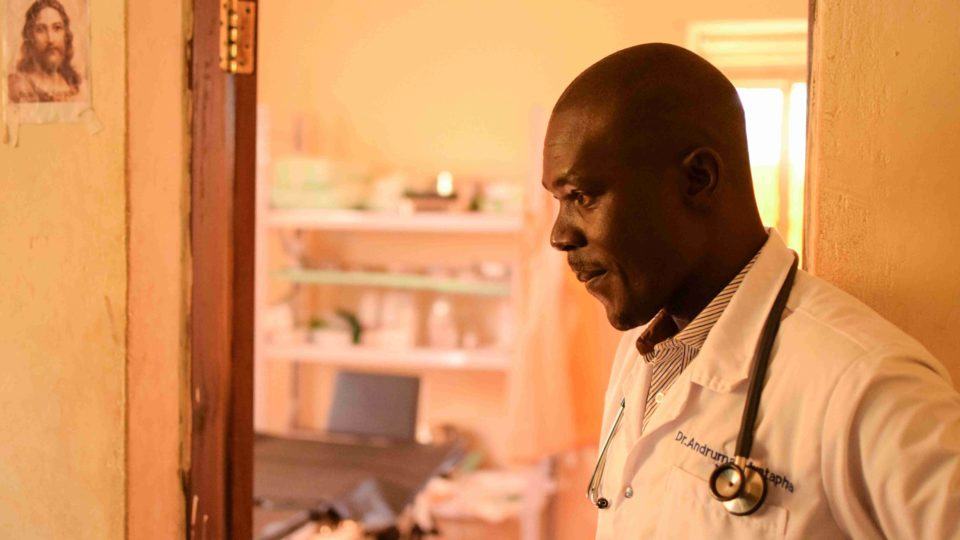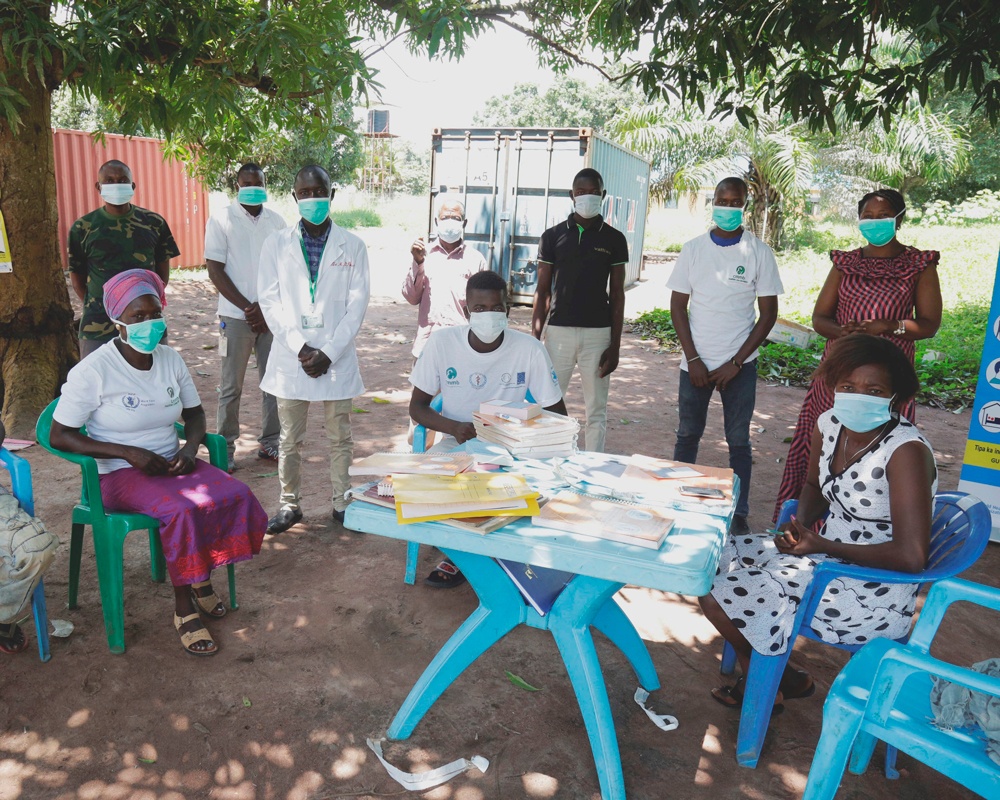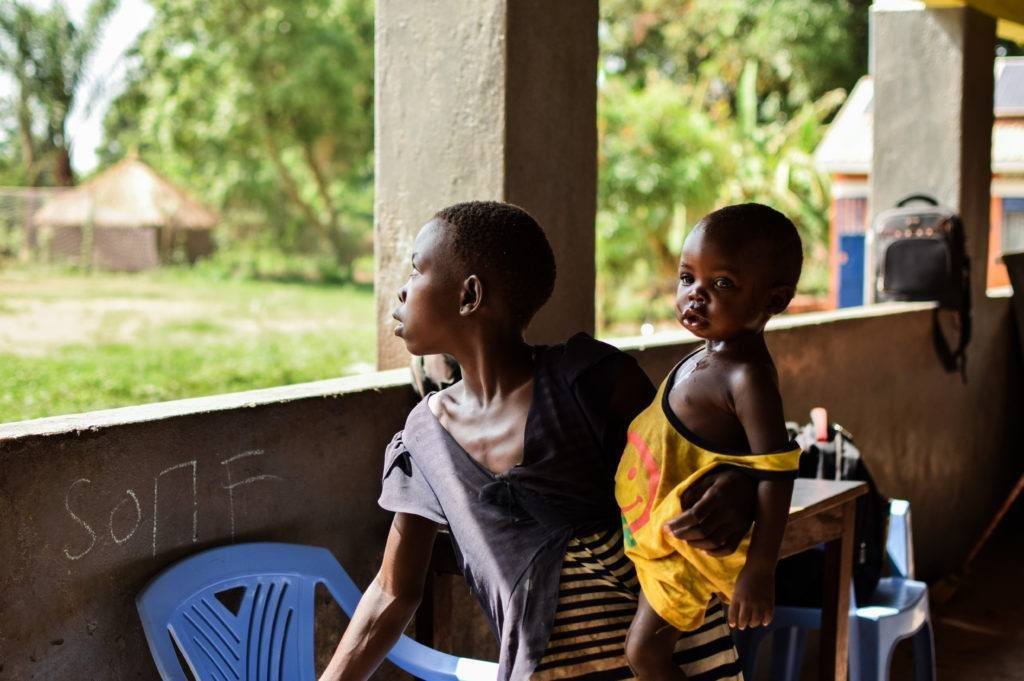Dr. Mustapha Reflects On a Year of COVID-19 in South Sudan

In South Sudan, health facilities operate with limited resources. Doctors and nurses care for patients without enough staff, medical equipment, and sometimes, even running water. Dr. Mustapha serves patients under these circumstance at South Sudan’s St. Therese Hospital. He’s used to guiding his staff through the daily challenges of care in an under-resourced setting, but the arrival of COVID-19 was like no challenge they had ever faced before.
In the interview below, Dr. Mustapha reflects on a year of COVID-19 at St. Therese Hospital—the changes in care, the impact on health care workers, and importantly, what keeps him going.
Tell us about this past year as a healthcare provider in South Sudan.

CMMB community health workers gathered in South Sudan.
I participated in case management with COVID-19 in our isolation center, in addition to my responsibilities with the Safe Motherhood project in South Sudan.
How has COVID affected health workers? It is a good question. In the context of South Sudan, there are so many issues. One of the greatest challenges is human resources and the shortage of health workers.
We had to train the staff to multitask. If you were a midwife, you had to deliver the baby. But you also had pass on information about COVID-19 prevention, identify anyone with symptoms, and isolate a suspected case. This was challenging because it did not allow providers to focus on their usual tasks.
South Sudan has had instability and internal violence since its inception. How has adding COVID-19 to an already fragile situation changed things?
There are a lot of psychosocial challenges in South Sudan. These people lived through war for so many years. Then, after South Sudan became independent, there was internal fighting. So really, they have never been settled. One moment they are trying to cultivate crops near their home and send kids to school and the next they are living in civil war or conflict. This reality disrupts all the systems—especially health systems.
Over the past two years there has been more stability. Also, our systems became stronger. Then COVID-19 came. I see people every day who look depressed, who look sad. They look distraught. You can visibly see it in some families. If you go deep into the villages, COVID-19 shutdowns have hit so hard.
How do you feel at work knowing this virus is out there? Has it affected you?

Definitely. When COVID first hit, lockdowns were announced last spring. I stayed in South Sudan for nine months without going home—I am from Uganda and my family is there. I felt detached from my family. Socially, I felt it was very difficult.
The staff and I watched the news every day. We saw so many people dying in the United States and we felt really afraid. Of course, at first it seemed far away. But then it kept spreading. We saw it coming like a bushfire approaching your home—you couldn’t stop it. It caused anxiety and fear in us.
In terms of preparation, we didn’t have a lot of information to give to our community in the beginning. The cultural aspects of this community also made it difficult because people don’t keep away when someone is dying. It took time for us to pass the message to the community and teach them the importance of social distancing, washing hands, and more.
South Sudan was not prepared—there was no personal protective equipment (PPE), no sanitizer, and the facilities were not ready. Donations to CMMB made it possible for us to receive a lot of PPE and supplies but initially we didn’t have it.
What do you want people to know about your work this past year?
Just like any other health worker, I feel I am committed to this work, and I want to give support to the needy. They really need the help. I am not God, but when I see a patient has recovered and we have saved a life, and they leave the hospital with a smile, I feel proud.
“You can see the meaning of life through this work.”
I feel we should not complain about what we do not have but use what we do have and be innovative.
Have you or your staff been vaccinated yet?
CMMB is working to roll out vaccines at the state level, so I hope to get it next week. We are really looking forward to it.